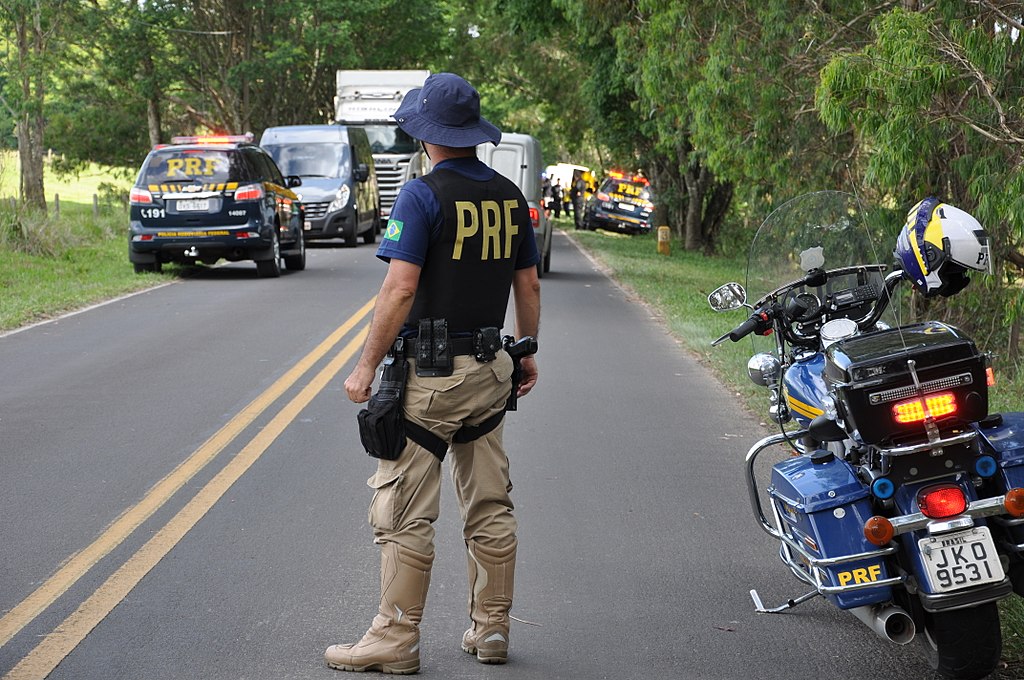Brazil: More cops to wear body cams in a move to REDUCE civilian deaths


Victoria Rees
Share this content
Police are to be ordered to wear body cameras in Rio de Janeiro as authorities seek to limit civilian deaths and make officers more accountable, after the trials in other parts of Brazil.
Rio de Janeiro has this month announced it is to start using officer body cams after success in reducing civilian casualties in other cities according to AFP news agency. But analysts and commentators are divided over the likely success.
Brazil has a serious police violence problem with one of the world’s worst recorded death rates allegedly at the hands of police: last year, more than 6,100 civilians died in police operations while 183 officers were killed, according to figures from watchdog group The Violence Monitor.
The Violence Monitor believes officers are rarely held to account over the use of force, according to Cesar Munoz, senior researcher for Brazil at Human Rights Watch.
According to the website insightcrime.org civilian killings connected to several military police units in São Paulo fell to zero in June 2021 after body cameras were introduced. The previous month 19 had died and in June 2020, 18 lost their lives.
A report from the newspaper, O Estado de São Paulo, said the results in reducing civilian deaths after body cams became standard issue were immediate, citing police statistics, on 18 military police battalions in Brazil’s largest city were outfitted with body cameras.
Figures showed however, that 22 people allegedly died in confrontations with police in São Paulo in June but all of these involved officers had not yet been outfitted with body cameras.
The program was first introduced by São Paulo governor João Doria in 2019 and has been progressively rolled out since. These cameras are fixed at chest height, are filming constantly and cannot be disconnected by the police officer wearing them.
The governor was keen and careful to emphasize the benefits to police officers of their actions being recorded on camera.
“This will act in favor of the police and the fairness of their work,” Roberval Conte Lopes, a state lawmaker in São Paulo, told O Estado de São Paulo. “Police must act within the law. And if they are acting within the law, they will have evidence in their favor.
“Body cams could be a useful way to both document the police’s actions and protect them from unfounded accusations.”
In Santa Catarina in the south of the country, academic research concluded the cameras have been responsible for reducing the use of force by police by more than 60 percent since 2019.
Jacarezinho was the scene of the bloodiest police shootout in the city’s history in May last year when a massive anti-drug trafficking operation ended with 27 alleged suspects and one policeman dead.
As things stand, most of the killings remain unresolved. Just four police and two alleged drug traffickers face charges.
Body cams could also help hold police to account over other accusations they face in Jacarezinho, such as invading people’s homes and stealing from them – as one resident documented with a hidden camera.
“They have to be part of a broader policy” that includes more training, psychological support for officers and truly independent investigations, he said.
The Brazilian people are being reminded that body cams are widely used across the Americas, including in Canada, United States, Mexico and Chile.
Rio State Police told AFP the new cameras would record automatically, with the images archived for around 90 days. It has not revealed details of the supplier or what OS will be chosen but it is expected to be part of a government contract.
Return to the NEWS index for Security Journal Americas


